(Page créée avec « The Filtron can filter 2L of water per hour. It eliminates particles and bacteria. Depending on the size of the plastic container, it is possible to store 10L of water. Th... ») |
|||
| Ligne 16 : | Ligne 16 : | ||
}} | }} | ||
{{ {{tntn|Introduction}} | {{ {{tntn|Introduction}} | ||
| − | |Introduction= | + | |Introduction=The ceramic filter FILTRON was built by the company Merinsa, in paternship with the US-based non-profit organisation Potters For Peace, for families living in slums around Lima and without access to drinkable water. A study was undertaken in order to evaluate how the filters reduce illnesses due to contaminated water: a filter was given to 60 families and a comparison was made with 60 other families who did not have filters. The results proved the efficiency of FILTRON in the reduction of stomach illnesses. After the study, a filter was given to all the families who took part of the experiment. |
| − | |||
| − | |||
The Filtron can filter 2L of water per hour. It eliminates particles and bacteria. Depending on the size of the plastic container, it is possible to store 10L of water. Thus, it is suitable for the use of a family. | The Filtron can filter 2L of water per hour. It eliminates particles and bacteria. Depending on the size of the plastic container, it is possible to store 10L of water. Thus, it is suitable for the use of a family. | ||
Version du 12 décembre 2018 à 00:45
Description
Water ceramic filter: case study of the filter FILTRON made by MERINSA Company in Lima, Peru.
Introduction
The ceramic filter FILTRON was built by the company Merinsa, in paternship with the US-based non-profit organisation Potters For Peace, for families living in slums around Lima and without access to drinkable water. A study was undertaken in order to evaluate how the filters reduce illnesses due to contaminated water: a filter was given to 60 families and a comparison was made with 60 other families who did not have filters. The results proved the efficiency of FILTRON in the reduction of stomach illnesses. After the study, a filter was given to all the families who took part of the experiment.
The Filtron can filter 2L of water per hour. It eliminates particles and bacteria. Depending on the size of the plastic container, it is possible to store 10L of water. Thus, it is suitable for the use of a family.
Avantages :
- L'utilisation du filtre ne requiert aucune énergie.
- Utilisation de matériaux locaux (terre, sciure de bois) et peut être fait à la main.
- Maintenance simple : laver à l’éponge 1x par semaine. Ne pas mettre au soleil car sinon algues poussent.
- Très peu cher (vendu à 30$ par l'entreprise Merinsa)
- Grande durée de vie : quelques années
- Possibilité de fermer le container en plastique : le couvercle empêche que l'eau soit re-contaminée
Inconvénients :
- Utilisation d'argent (matériau non présent localement)
- Utilisation d'un four atteignant 1000°C --> se renseigner si un potier dans votre région possède un four pour la céramique que vous pouvez utiliser.
- Sont lourds et gros
- Dans notre cas, le prix du filtre est bas mais reste encore trop élevé pour les personnes qui en ont besoin dans les bidonvilles, leur revenu étant trop faible. Ce sont plutôt des associations caritatives qui achètent les filtres à l'entreprise Merinsa et les distribue aux familles. L’entreprise ne fait pas de bénéfice avec ces filtres, c’est une action sociale.
CONTEXTE :
L’eau est un réel problème au Pérou, dans la montagne, la forêt, sur la côte…En ville, l’eau est chlorée pour être désinfectée. L’eau qui se trouve dans les tuyaux du réseau de la ville est en théorie bonne mais cette même eau est souvent stockée dans des tanks. Ces tanks ne sont pas toujours fermés et l’eau se fait ainsi re-contaminée. Les gens achètent donc de l’eau en bouteille ou alors investissent dans des filtres. C’est là qu’intervient Merinsa, l'entreprise étant spécialisée dans la fabrication de filtres. Il y a encore beaucoup à faire au Pérou pour purifier l’eau.
A Lima, les bidonvilles s'étendent sur les montagnes alentour. L'eau est stockée dans des énormes containers et est accessible (mais contaminée) pour les habitations situées en aval. Les nouvelles habitations construites au fur et à mesure de l'expansion du bidonville se retrouvent en amont de ces containers et n'ont donc pas accès à l'eau.
Matériaux
- Argile
- Sciure de bois
- Argent
- Container en plastique doté d'un robinet
Outils
- Four pouvant atteindre 1000°C
Étape 1 - Pot en céramique
Les filtres à eau en céramiques peuvent purifier l’eau grâce à système de pores : de la sciure de bois est incorporée à la pâte d’argile du pot puis le pot est chauffé à 1000°C . Le bois brûle et laisse des pores dans la céramique.
Étape 3 - Container en plastique
Mettre le pot dans un container en plastique plus ou moins grand selon la quantité d'eau que l'on veut pouvoir stocker.
Les FILTRONs utilisent des containers de 20L et peuvent stocker 10L d'eau purifiée.
Notes et références
Retrouvez l'histoire des filtres FILTRON de l'entreprise Merinsa à Lima au Pérou : http://www.merinsa.com/resp_social.html
L'association américaine Potters For Peace a pour objectif d'aider les potiers du monde entier à fabriquer des filtres à eau en céramiques : http://pottersforpeace.org/?page_id=63. Retrouvez leurs tutos pour fabriquer fours/ presses.. : http://pottersforpeace.org/?page_id=487
D'autres infos sur les filtres en céramique sur le site de l'association caritative canadienne CAWST : https://www.hwts.info/products-technologies/d25e3821/ceramic-pot-filter/technical-information
Nous sommes deux étudiantes en exploration de Low Tech en Amérique du Sud, pour suivre nos découvertes, c'est par ici : https://www.facebook.com/LAtelierLowTech/.
Published
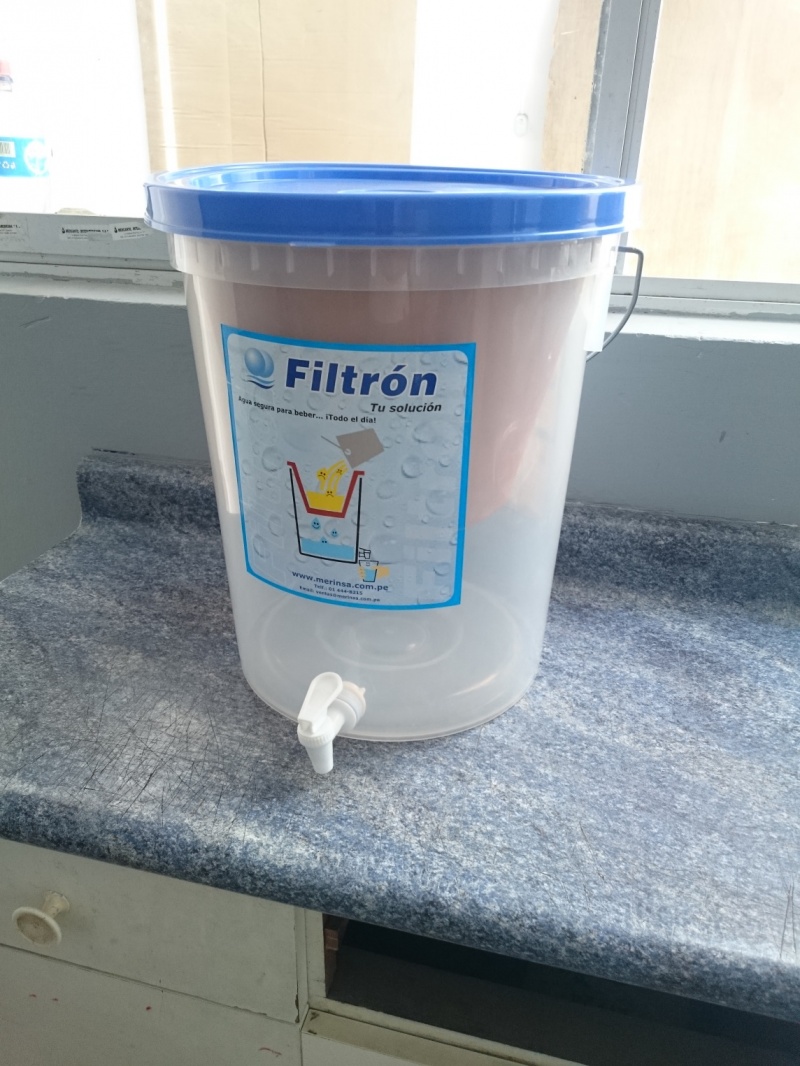
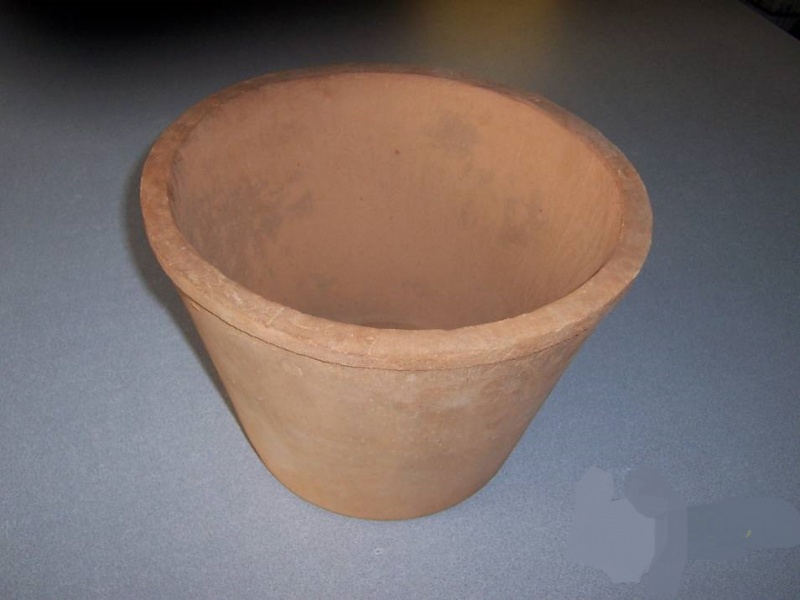
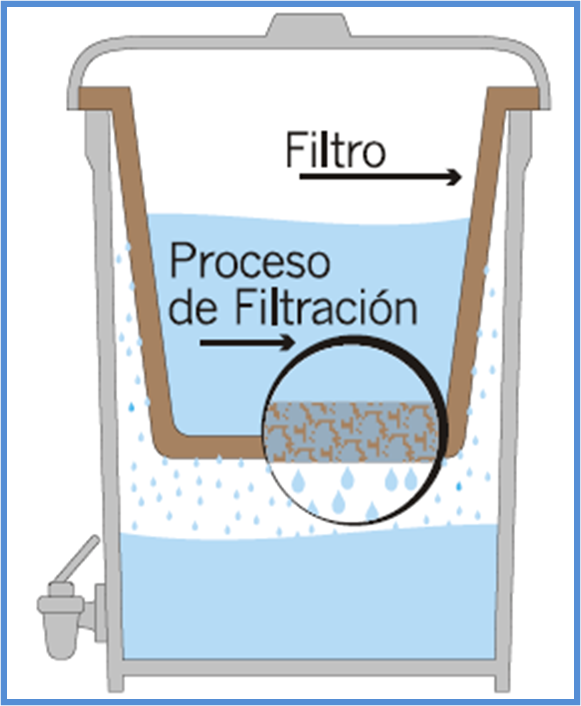
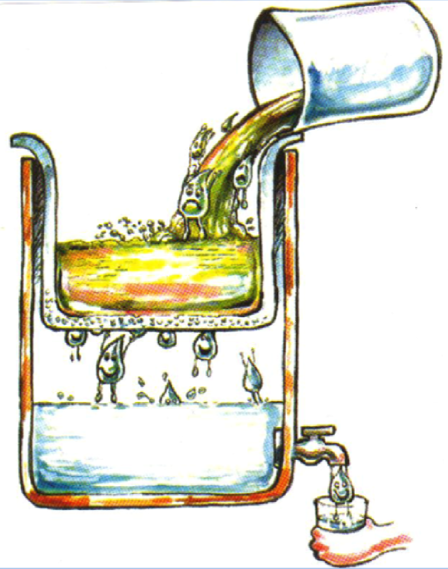
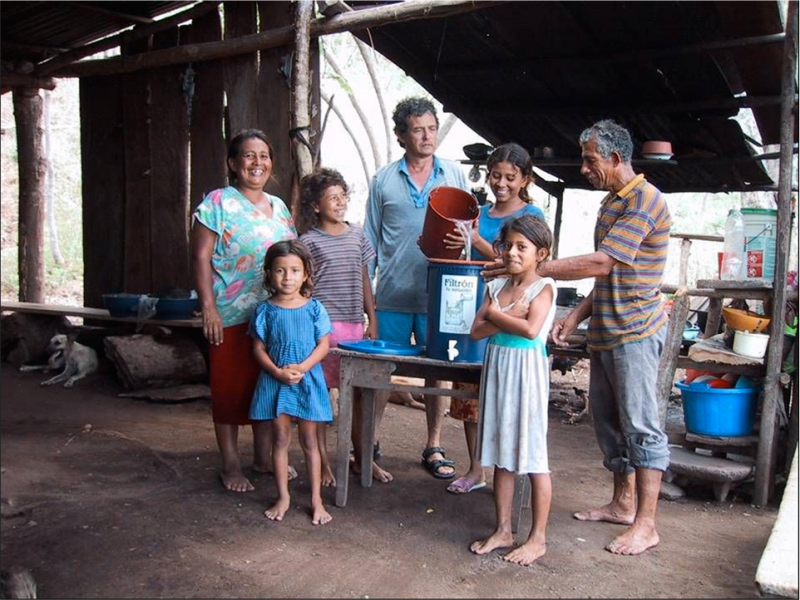
 Français
Français English
English Deutsch
Deutsch Español
Español Italiano
Italiano Português
Português